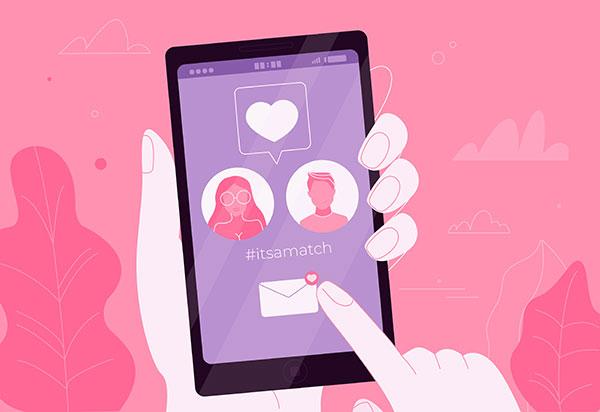Research suggests ‘ephemeral sharing’ can break the ice in online dating

Looking to make a love connection this Valentine’s Day? More than 350 million people worldwide use dating apps like Tinder, Bumble and Hitch to find romantic partners, but many are reluctant to share personal information with strangers during their initial interactions, a concern that significantly hinders their chances of making a match.
New research from a professor at Tulane University's A. B. Freeman School of Business suggests that a new privacy feature has the potential to put users more at ease and ultimately lead to more romantic connections.
Yumei He, an assistant professor of management science, studied the use of “ephemeral sharing,” which allows dating app users to share photos that automatically disappear after being viewed by the recipient.
He and co-authors Xingchen Xu, Nina Huang, Kevin Hong and De Liu conducted a large-scale field experiment in which more than 70,000 users of a leading Chinese dating platform were randomly assigned to either have access to ephemeral sharing or to not have access to the feature.
The results were striking: Users with access to ephemeral sharing shared over 50% more photos than users without access to the feature, and, significantly, over 60% of the photos they shared showed their faces prominently. That increase in personal information sharing led to better outcomes. Users with access to ephemeral sharing had 3% more matches than users without access and received 4.6% more messages from interested parties.
“This suggests that ephemeral sharing does more than just increase photo sharing,” He says. “It also helps to overcome the initial hesitation newly connected users face on dating platforms, commonly referred to as the cold-start problem. Our findings can be attributed to the privacy-related reason: Ephemeral sharing lessens user privacy concerns, as users feel more secure knowing their photos and identity are less likely to be misused or distributed without their consent.”
He says that while ephemeral sharing isn't foolproof, the added layer of privacy it provides can encourage users to present a more authentic version of themselves, and authentic self-disclosure is a critical component in turning digital introductions into real-world relationships.
To read the study in its entirety, visit https://papers.ssrn.com/sol3/papers.cfm?abstract_id=3740782.
Interested in advancing your education and/or career? Learn more about Freeman’s wide range of graduate and undergraduate programs. Find the right program for you.
Other Related Articles
- Harvard Business Review: Why AI Boosts Creativity for Some Employees but Not Others
- Research Notes: Yang Pan
- Quartz: Companies that replace workers with AI ‘risk mediocrity,’ expert warns
- CNET: I Asked AI Chatbots About Problem Gambling. Then They Gave Me Betting Advice
- Freeman Futurist Series explores innovation, leadership and emerging technologies
- Freeman researcher helps create open-source AI that rivals industry leaders
- NOLA.com: Your online searches might be biased from the start. A Tulane professor studied the reason
- New Orleans CityBusiness: Maximizing AI’s potential requires employee training
